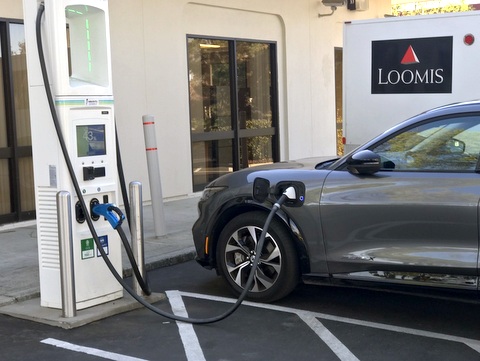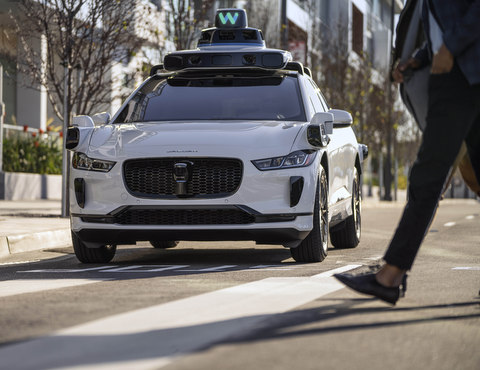How EV Drivers Are Upgrading Rides and Rethinking Finances
This article may contain affiliate links.
Not too long ago, owning a car was pretty straightforward. You picked a make and model, drove it for a decade (maybe more). When it started showing its age, you traded it in or sold it. But today’s drivers—especially those with electric vehicles (EVs)—are doing things differently.
The way people view cars is changing fast. EVs have introduced more than just battery-powered motors; they’ve brought in a whole new mindset. It’s no longer just about transportation—it’s about customization, efficiency—and even financial strategy. WallStreetZen explains why this shift is happening by pointing to how consumer behavior is adapting to new technologies, fluctuating fuel costs and evolving lifestyle priorities.
Let’s explore how EV drivers are redefining car ownership and rethinking the way they spend, upgrade, and interact with their rides.
EVs Are More Than Just Cars—They’re Platforms

Electric vehicles aren’t just quieter and cleaner—they’re smarter. Think of them as computers on wheels.
Here’s why EVs stand apart:
- Software updates happen automatically and improve performance or add new features—just like your phone.
- Personalization is baked in, with customizable driving modes, touchscreen layouts and even ambient lighting options.
- Connectivity allows EVs to sync with smartphones, smart homes and even public charging networks.
This constant evolution means drivers aren’t replacing their cars every few years. Instead, they’re enhancing what they already have.
Ownership Is Evolving: Less Commitment, More Flexibility
Traditionally, owning a car meant a long-term financial commitment—usually a loan or lease that lasted 3–7 years. But EVs have opened the door to more flexible arrangements, especially for urban and younger drivers.
New trends in ownership:
- Subscription-based models: Think of it like Netflix for cars—monthly fees cover usage, maintenance and even insurance.
- Short-term leases: Great for trying out an EV without long-term risk.
- Peer-to-peer sharing: Owners can rent out their EVs to others when not in use, offsetting monthly costs.
These models appeal to a generation that values flexibility over ownership. For many, it’s less about “having” a car and more about “using” one when needed. As EV tech continues to improve rapidly, short-term access becomes more practical than long-term ownership of a depreciating asset.
Upgrades Are Replacing Trade-Ins
Instead of replacing their vehicles every few years, many EV owners are doubling down on what they already have by investing in upgrades—both digital and physical.
Popular upgrades include:
- Battery enhancements for extended range
- Performance software packages that boost acceleration
- Interior retrofits like new seats, touchscreens or audio systems
- Enhanced charging solutions, including home wall chargers and portable fast chargers
Interestingly, this trend isn’t limited to EVs. Gas-powered car enthusiasts have been modding their rides for years—and the culture is thriving. For example, those interested in aftermarket Toyota Tacoma mods often customize their trucks with lift kits, LED lighting or upgraded suspension systems. Whether you drive electric or gas, the idea is the same: make the ride your own.

Smarter Spending: EVs Are Changing Financial Habits
Electric vehicles aren’t just changing how we drive—they’re changing how we spend. EVs typically require less maintenance (no oil changes, fewer moving parts), which means drivers often find themselves with extra cash on hand.
Here’s how many EV drivers are using those savings more strategically:
- Investing in in-car technology: From advanced driver-assistance systems (ADAS) to premium entertainment subscriptions like Tesla’s connectivity package, drivers are opting for digital convenience.
- Reallocating funds to other goals: Some redirect maintenance savings toward financial goals like debt reduction, investing in stocks, or even starting a side hustle.
- Adopting eco-conscious spending: It’s common for EV drivers to extend their green thinking into their wallets—opting for ethically sourced goods, installing solar panels or supporting local sustainability efforts.
- Insurance optimization: With fewer repair needs, many are shopping for smarter, usage-based insurance to bring premiums down even further.
More than just reducing costs, EV ownership is inspiring drivers to take a more proactive, purposeful approach to money management. It’s not just about saving money—it’s about spending smarter and aligning finances with personal values.
The Bigger Shift: From Ownership to “User-ship”

Underneath all of this—upgrades, financial changes, and new tech—is a deeper cultural transformation. More people are seeing themselves not as owners of things, but users in a shared, dynamic system.
This shift is part of a broader movement toward “user-ship,” and it’s happening across industries—from streaming platforms to coworking spaces. In the automotive world, it looks like this:
- Function over possession: People care less about owning a specific car and more about having access to transportation that fits their needs in the moment.
- Sustainability first: Car-sharing, EVs and public transportation are more than alternatives—they’re choices that reflect ethical and environmental priorities.
- Community-driven innovation: EV forums, user groups and social media spaces are becoming hubs for tips, updates and hacks. People are learning from one another, making car ownership feel more collaborative than ever.
This change is especially appealing to younger generations who grew up with digital tools and are more likely to value experience over ownership. For them, the car isn’t a status symbol—it’s a service.
Conclusion: Rethinking What It Means to “Own” a Car
Electric vehicles are doing more than reducing emissions—they’re rewriting the rules of car ownership. Drivers are skipping trade-ins for upgrades, ditching long-term loans for monthly flexibility and putting financial savings toward smarter choices. But perhaps more importantly, they’re challenging a century-old assumption: that cars are something we must own to benefit from.
The new approach to car use is more sustainable, more financially savvy, and more aligned with modern lifestyles. Whether it’s using your EV as a mobile workspace, customizing your ride digitally or simply choosing not to own a car at all, the options have never been more diverse.
Even if you’re not ready to make the jump to electric just yet, the shift is worth watching. The future of car ownership might not look like owning at all—and that could be a good thing.
In the end, it’s not just about how we drive. It’s about how we live—and EVs are leading the way toward a future where we do both a little more consciously.
The post The Future of Car Ownership first appeared on Clean Fleet Report.

